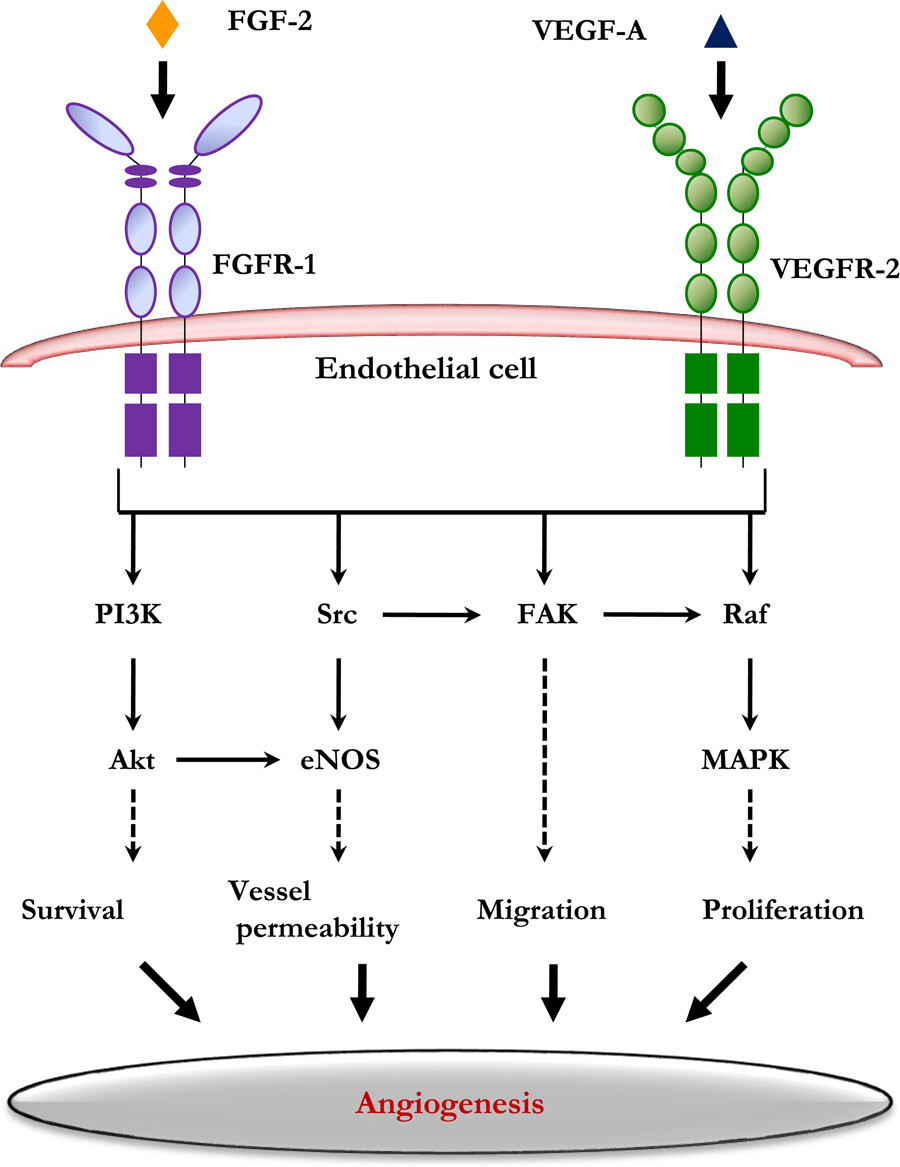MedComm-oncology | Insight on the cellular and molecular basis of blood vessel formation: A specific focus on tumor targets and therapy

Open the phone and scan

The two major angiogenic signaling pathways involved in vessel formation. Schematic representation of sequential events that take place under activation of angiogenesis. The paradigm follows the activation of vascular endothelial growth factor receptor 2 (VEGFR-2) and fibroblast growth factor receptor 1(FGFR-1), which activates downstream PI3K, Src, FAK & Raf for either survival, vessel permeabilization, migration, or proliferation mechanism of endothelial cells. FAK, focal adhesion kinase; PI3K, phosphotidylinositol 3-kinase; Raf, rapidly accelerated fibrosarcoma; Src, cytoplasmic non-receptor protein tyrosine kinase.
The cellular and molecular switches that govern angiogenesis are considered therapeutic targets for several diseases like tumors and atherosclerosis. Thus, understanding the detailed molecular mechanisms underlying the formation of the new blood vessel is essential for developing novel therapeutic strategies. The formation of a new blood vessel (angiogenesis) is tightly regulated by balancing pro- and antiangiogenic molecules. Dysregulated angiogenesis contributes to the pathogenicity of several diseases, including tumors associated with uncontrolled vessel growth. Experimental and clinical studies emphasize that angiogenesis is a critical step for the transition of the tumor to a life-threatening malignancy. In recent years, angiogenesis has been targeted as one of the primary therapeutic goals for treating tumors, and rapid progress has been made by modulating its molecular regulators. Hence, the mechanisms of how blood vessel formation occurs could provide molecular insight into future angiogenic therapy. This review summarizes briefly the molecular players of blood vessel formation comprising vasculogenesis and angiogenesis and their role in tumor progression alongside antiangiogenic therapy.
Article Access: https://doi.org/10.1002/mog2.22
More about MedComm-Oncology: https://onlinelibrary.wiley.com/journal/27696448
Looking forward to your contributions.


